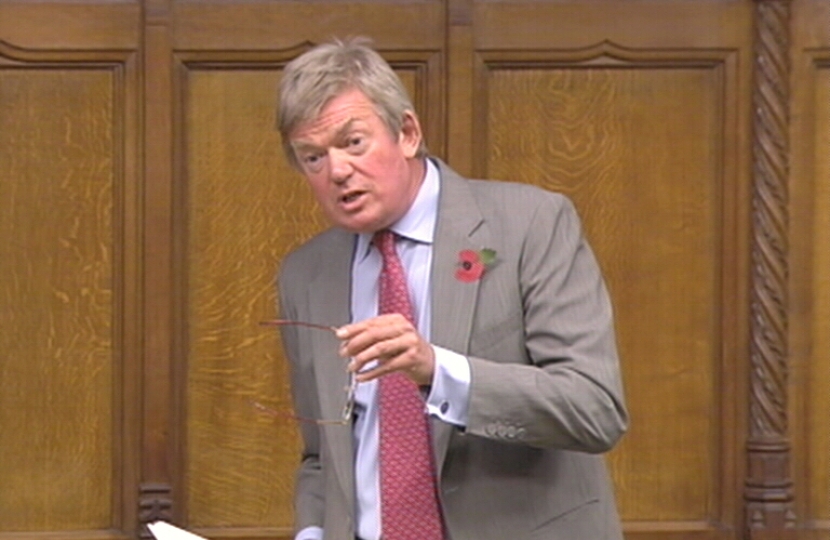
Ahead of the Second Reading of his Parking Places (Variation of Charges) Private Member’s Bill on Friday, which aims to boost local high streets, David Tredinnick MP today took part in a Parliamentary Debate on Car Parking Charges.
The Bill to be introduced by the Bosworth MP on Friday would enable local councils to reduce parking charges without the need to give 21 days’ notice. The proposed changes will also make it harder for local authorities to increase fees by requiring councils to consult with interested parties and stakeholders first.
Extracts of today's debate are copied below:
David Tredinnick (Bosworth) (Con)
I am grateful to my hon. Friend for giving way, and to be able to speak in this debate with the Under-Secretary of State for Communities and Local Government, my hon. Friend the Member for Nuneaton (Mr Jones), who is my neighbour in Leicestershire. The constituency of my hon. Friend the Member for Stevenage (Stephen McPartland) has many parallels with mine. We have the MIRA business park and we have very low unemployment. I support what he is trying to do with this debate. On Friday, my private Member’s Bill should receive its Second Reading. It has the twin purpose of allowing councils to reduce parking charges without 21 days’ notice, and introducing a proviso that should councils want to increase parking charges, they will have to consult.
That is an excellent intervention. I would be happy to support my hon. Friend’s private Member’s Bill.
The Parliamentary Under-Secretary of State for Communities and Local Government (Mr Marcus Jones)
The Government must support local people, building skills and spreading best practice, while doing everything we can at a national level to support high street growth.
Let me take this opportunity to commend the private Member’s Bill introduced by my hon. Friend the Member for Bosworth (David Tredinnick). The Parking Places (Variation of Charges) Bill offers an excellent opportunity for a small but sensible reform to local authority car parks. The Bill would give the Government powers to scrap the bureaucratic requirements on local authorities if they wish to lower their car parking charges. That is extremely important, because it offers a real opportunity for councils to be at the forefront, supporting their high streets. For example, they can respond to the opportunity of a town centre festival or event by quickly and flexibly reducing car parking charges. Where areas can do that for specific events, it makes a huge difference. It often attracts a lot of people into the town centre who may live in the area but who do not necessarily visit that town. They can get a feel for the town centre, and often it reminds them what is there and what they can do while they visit.
The Bill would also provide for a consultation requirement if councils wished to increase the charges. Councils often get to the budget-setting process in the year and decide that they want to fill a hole in the revenue budget. Car parking charges are often seen as an easy fix. It is important for councils to have to engage with their local populations and consult to ensure that they are doing the right thing in taking that approach. Charging levels are often a significant concern to town centre businesses, and we think it is fit and proper that councils listen to those businesses before they set their charges. The Bill is on Second Reading on Friday, and I look forward to colleagues in the House supporting it wholeheartedly.
In conclusion, the Government are committed to helping our high streets to adapt to the changing needs of communities and making them fit for the 21st century, but we need to be clear that there is no one-size-fits-all solution. Every town is different, but parking has a key role to play in encouraging people to use our town centres. Everyone needs to play their part, with local economic partnerships, local authorities, businesses, communities and local Members of Parliament coming together. Local areas must come together to work on behalf of local businesses, bring local people into our town centres and deliver a package that they can be proud of. As we are seeing, many people are indeed proud of their town centres, because across the country more than 400,000 people have voted for their favourite high street in our Great British high street competition.
Question put and agreed to.
